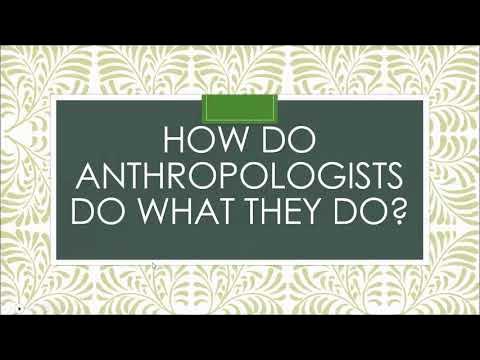Teori interpretative clifford geertz
Summary
TLDRThis transcript explores Clifford Geertz’s interpretive approach to anthropology, emphasizing culture as a system of symbols that shape human behavior. Geertz argues that anthropologists should focus on understanding the meanings behind human actions, rather than just causal explanations. The script provides examples from Javanese culture, such as mourning rituals, the act of questioning, and food symbolism, to highlight how shared cultural symbols communicate values and social bonds. The discussion reflects on the role of symbols in conveying solidarity, social discipline, and emotional expression within societies.
Takeaways
- 😀 Culture is defined as a system of skills and symbols that individuals use to define the world, express feelings, and create values.
- 😀 Culture also refers to a historically developed pattern of meanings contained in symbolic forms through which humans communicate, consolidate, and develop knowledge about life.
- 😀 Culture is described as a symbolic tool for human behavior, influencing interactions and conveying extramatic information.
- 😀 Clifford Geertz's interpretive anthropology emphasizes the need to understand culture through concrete realities and humanistic disciplines, such as poetry, literature, and symbolic forms.
- 😀 Geertz argues that anthropology should not follow natural science models but focus on interpreting the meaning in human behavior.
- 😀 The interpretive approach in anthropology is often linked with synchronic concepts, and it stresses the interpretation of human actions rather than identifying casual explanations.
- 😀 Geertz believes anthropology should focus on relationships, analogies, and narrative forms, such as drama and literature, rather than attempting to explain behavior using organic structure models.
- 😀 A key concept of Geertz's theory is that cultures share systems of symbols and meanings, which differentiate humans from other species.
- 😀 Symbols are essential in culture, including spoken or written words, sounds, and physical forms that hold specific meanings.
- 😀 The interpretive symbolic theory involves analyzing cultural traditions and how each tradition has specific symbols that hold particular meanings, such as death rituals, questions, or food symbolism in different cultures.
Q & A
What is the definition of culture according to the transcript?
-Culture is described as a system of skills and symbolic meanings through which individuals define their world. It involves the expression of feelings, the creation of values, and the transmission of knowledge through symbolic forms such as language, art, and customs.
How does Clifford Geertz approach anthropology differently from traditional methods?
-Clifford Geertz advocates for interpretive anthropology, which emphasizes understanding the meanings behind human actions rather than simply explaining the causes. This approach views human behavior as part of a symbolic system that conveys deeper cultural meanings.
What is the significance of symbols in Geertz's theory of culture?
-In Geertz's theory, symbols are the key to understanding culture. They are objects, events, sounds, or written forms that are imbued with meaning by human beings. Culture is seen as a system of shared symbols that help individuals communicate and form common understanding.
Why does Geertz believe anthropology should be based on concrete realities?
-Geertz believes anthropology must focus on concrete realities because human culture is not abstract or purely theoretical; it is rooted in real, observable practices, symbols, and actions within specific societies.
What does Geertz mean by 'symbolic interaction' in human behavior?
-Symbolic interaction refers to the way humans use symbols—such as language, gestures, and written forms—to interact with one another. These symbols convey meanings that help individuals navigate their social world, express emotions, and understand each other.
What is the difference between causal explanations and interpretative approaches in anthropology?
-Causal explanations attempt to identify the direct causes of human behavior, often focusing on material or environmental factors. In contrast, interpretative approaches, like Geertz's, focus on understanding the deeper meanings and interpretations behind human actions, looking at behavior as a reflection of cultural symbols.
How does the concept of 'meaning' fit into Geertz's theory of culture?
-In Geertz's theory, meaning is central to culture. Every action, ritual, and practice within a culture carries specific meanings that are understood collectively by members of that society. These meanings are often communicated through symbols and rituals.
What role do rituals and traditions play in cultural meaning-making?
-Rituals and traditions are vital in the process of meaning-making. They involve the use of symbolic actions (e.g., funerals, meals) that express shared values and beliefs, reinforcing the collective identity of a society.
Can you explain the symbolic meaning of funeral practices in Javanese culture as discussed in the transcript?
-In Javanese culture, funeral practices hold symbolic meaning related to solidarity and sympathy. For example, family and community members express empathy by visiting the mourning household, with women bringing rice and men preparing funeral necessities, symbolizing support and compassion for the grieving family.
How does food symbolize social relationships in the context of the transcript?
-Food in the transcript is shown to symbolize social relationships in multiple ways. Offering food to others represents love and friendship, and sharing meals during gatherings or events like 'arisan' (community meetings) strengthens social bonds. In some cases, food also serves as a form of stress expression, where overeating can reflect emotional distress.
Outlines

This section is available to paid users only. Please upgrade to access this part.
Upgrade NowMindmap

This section is available to paid users only. Please upgrade to access this part.
Upgrade NowKeywords

This section is available to paid users only. Please upgrade to access this part.
Upgrade NowHighlights

This section is available to paid users only. Please upgrade to access this part.
Upgrade NowTranscripts

This section is available to paid users only. Please upgrade to access this part.
Upgrade NowBrowse More Related Video
5.0 / 5 (0 votes)





